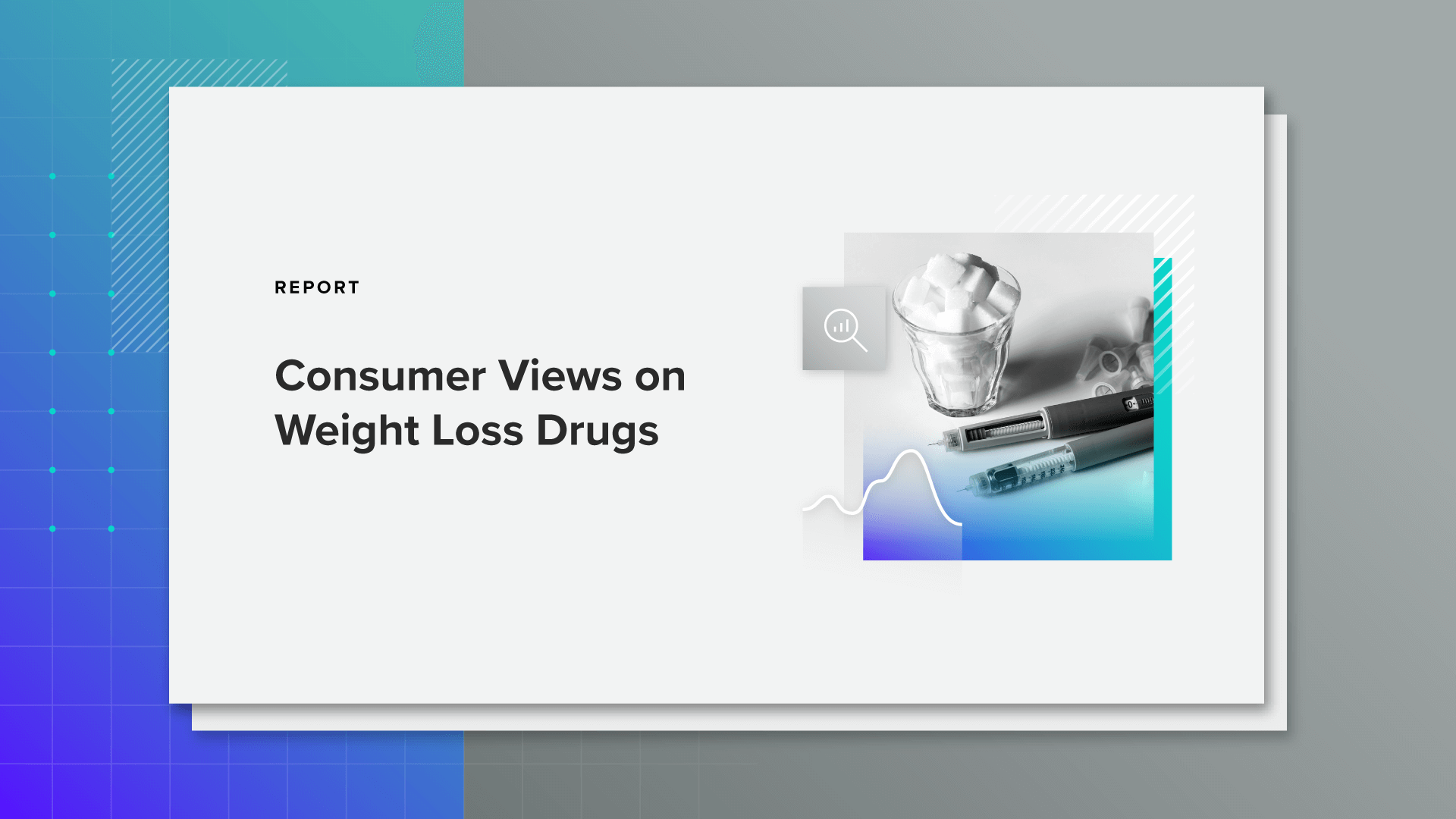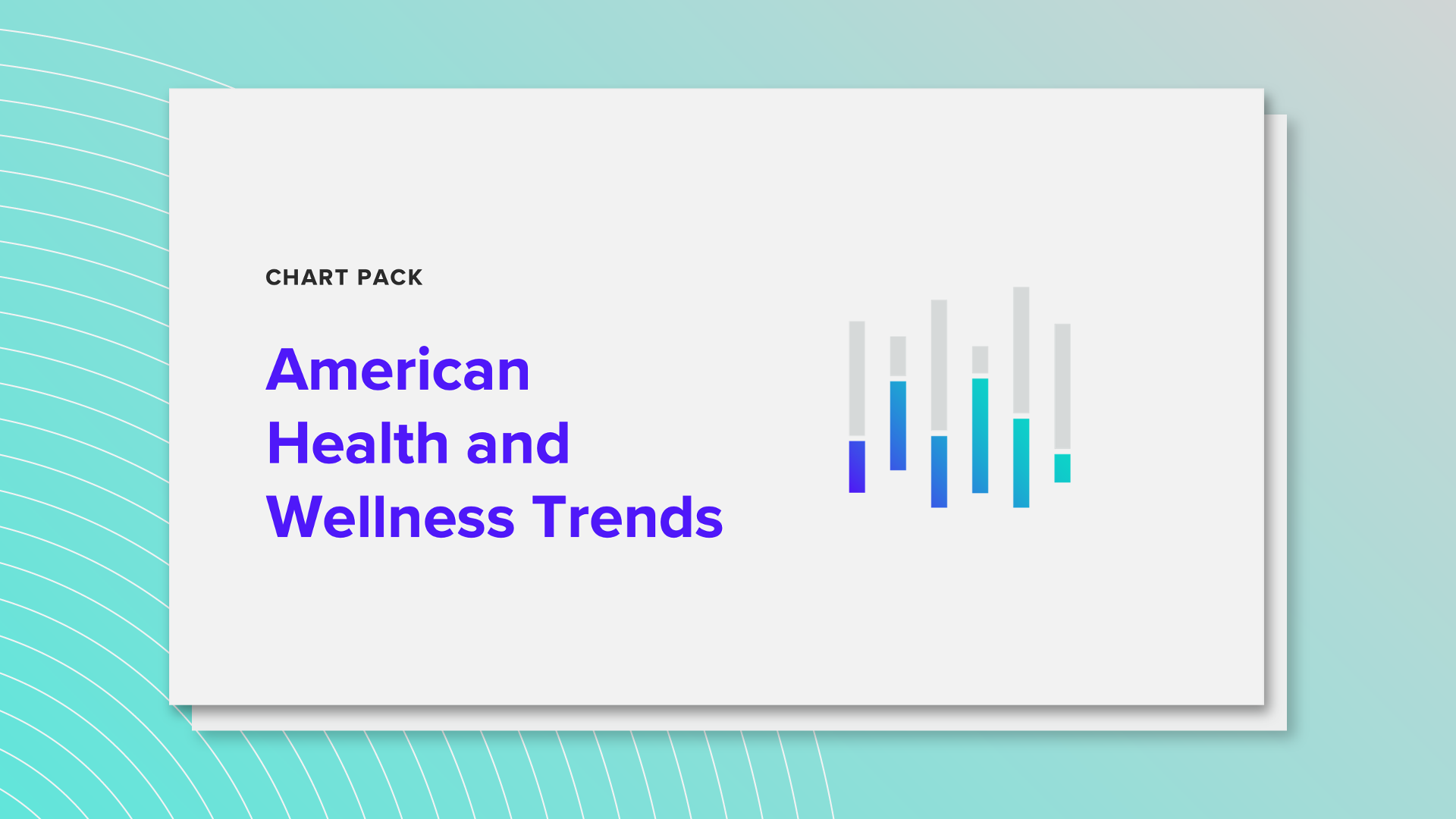A Third of Parents Are Interested in Weight Loss Drugs Like Ozempic for Their Children

Key Takeaways
1 in 3 parents said they are “definitely” or “probably” interested in having their children use GLP-1 prescription drugs if they were available, while nearly 2 in 3 parents who have children with weight-related issues said the same.
Among all U.S. adults, 28% said they support the use of prescription GLP-1 weight loss drugs to help address childhood obesity. Shares of support were higher among various parent demographics.
Much of the public doesn’t know or have an opinion on the use of weight loss drugs to address childhood obesity, likely due to a lack of awareness and because GLP-1 clinical tests for children are ongoing.
Data Downloads
With robust sample sizes, Morning Consult’s public opinion data can be analyzed by specific demographics, such as gender, generation, political party, income, race and more. Please contact [email protected] to purchase this data.
GLP-1 weight loss drugs like Ozempic are expected to be a boon for pharmaceutical companies in the coming years, as obesity affects roughly 2 in 5 Americans, a majority of adults say they feel the need to lose weight and almost 3 in 10 Americans are interested in taking these drugs. Now, drugmakers are even considering adding a new consumer base: children.
GLP-1 makers Novo Nordisk and Eli Lilly are testing the safety and efficacy of these drugs for children as young as 6 years old. While obesity has a significant impact on the adult population, more than 14 million U.S. children and adolescents are also struggling with it. The issue even spurred the American Academy of Pediatrics in January to recommend the use of weight loss drugs for children ages 12 and older to fight obesity.
The use of weight loss drugs among children is a divisive issue, but amid America’s obesity crisis, many parents are considering the treatment for their own kids. New Morning Consult data shows 1 in 3 parents of children under 18 said they are “definitely” or “probably” interested in having their children use GLP-1 prescription drugs if they were available.
1 in 3 Parents Are Interested in GLP-1 Weight Loss Drugs for Their Kids
GLP-1 interest is high among parents who have children with weight-related issues
The share of interested parents was slightly higher among those who have children ages 6 to 11. The highest interest among parents was those with children who have weight-related issues, at 65%. Childhood obesity can lead to several physical health complications like Type 2 diabetes, high blood pressure, joint pain and breathing problems, in addition to social and emotional issues linked to teasing or bullying.
Specific demographics at scale: Surveying thousands of consumers around the world every day powers our ability to examine and analyze perceptions and habits of more specific demographics at scale, like those featured here.
Why it matters: Leaders need a better understanding of their audiences when making key decisions. Our comprehensive approach to understanding audience profiles complements the “who” of demographics and the “what” of behavioral data with critical insights and analysis on the “why.”
While parental intrigue in these drugs is high, almost half of parents (46%) are “probably not” or “definitely not” interested in having their children take GLP-1 drugs. One in 5 parents said they don’t know or have no opinion on the drugs, suggesting some could be swayed if clinical tests among children show positive results.
Parents are more likely than the public to support GLP-1 drugs to fight childhood obesity
Morning Consult data also shows that parents are more likely than the general public to support the use of GLP-1 prescription drugs to help address childhood obesity.
About 3 in 10 Adults Support GLP-1 Weight Loss Drugs for Childhood Obesity
Among all U.S. adults, 28% said they support the use of prescription GLP-1 weight loss drugs to fight childhood obesity. The shares of supporters were higher among parents of children ages 6-11 (44%), ages 12-17 (38%) and children with weight-related issues (58%). The general public was more likely to oppose than support the use of these drugs among kids, though a high share of adults (32%) said they didn’t know or had no opinion on the matter.
Part of this uncertainty could be due to a lack of awareness: Just 29% of adults have seen, read or heard at least something about drug companies’ interest in making the drugs available to children as young as 6, while the various parent groups were more likely to have heard this news. The public is still waiting to hear the results of GLP-1 clinical tests among children, so many Americans are probably holding out on forming an opinion until they have scientific data to do so.
Brian Yermal previously worked at Morning Consult as a research editor on the Industry Intelligence team.


